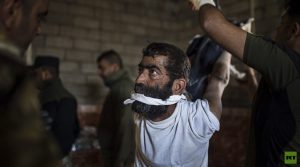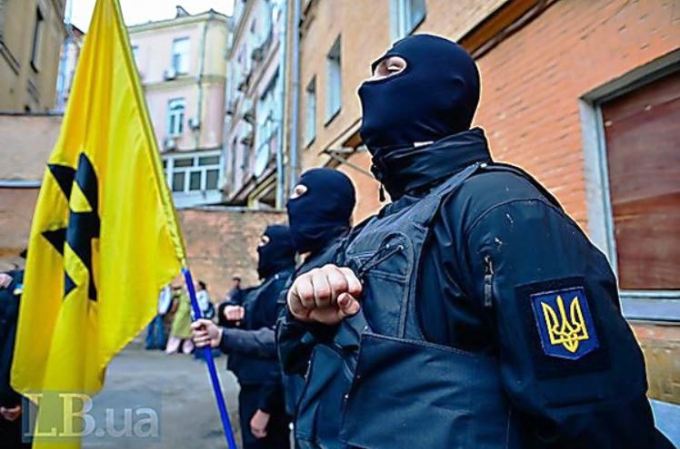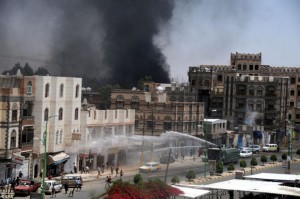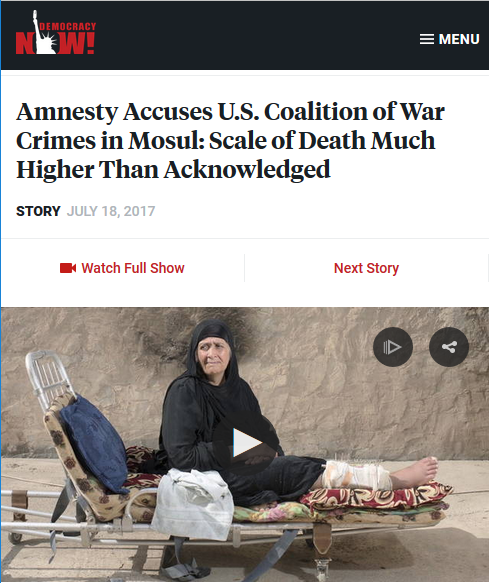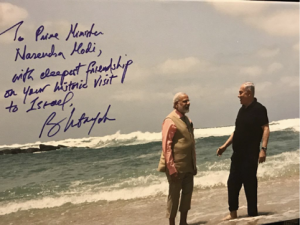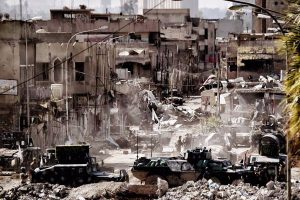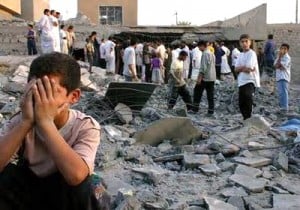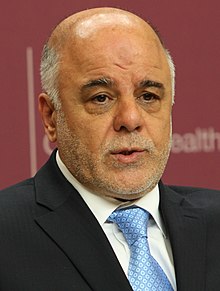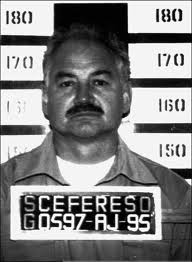Oil prices remain below $50 per barrel. Saudi Arabia and its longtime ally Qatar are now clashing. The situation on the Korean Peninsula is intensifying. The USA is being more and more hostile to China, while Venezuela faces an internal crisis.
How does one make sense of all this? Are these just random world events, which happen to all be occurring simultaneously? Hardly. These events can be understood and explained in the context of the ongoing global conflict. Much like during the Cold War, two different social and political systems are clashing with each other. Unlike the Cold War, the lines are not at all ideologically clear, but the underlying contradiction remains the same.
The dominant force in the world today is western liberal capitalism. Banking institutions and major corporations controlled by very wealthy people in New York City, Silicon Valley, London, Paris, and Frankfurt sit at the center of a global financial empire. They function as monopolists, collaborating with states to eliminate their competitors and keep the profits of the world market flowing directly toward them.
A bloc of independent countries are resisting their domination. The emerging bloc of nations seek to bring themselves up from poverty. They do not want to remain impoverished client states within the western financial apparatus, but rather to become modernized, self-reliant and developed countries. In order to develop and establish independence, these countries have been forced to adopt more or less state controlled, centrally planned economies.
The Siege Against “Petro-Socialism”
Venezuela, Russia, and Iran all have economies centered around government control of oil and natural gas. These natural resources are in the hands of the state, and while each of these countries have a large market sectors, the state controlled natural resources are the center of the economy, and the market sector is subordinated to them. The governments of Russia, Iran, and Venezuela draw support from a loyal, well organized population, which receives many benefits paid for with state oil revenue.
The Islamic Republic of Iran emerged from the 1979 popular revolution. The US backed dictator was toppled, and with slogans of “Not Capitalism But Islam” and “War of Poverty Against Wealth” the new government seized power. The Islamic Republic draws its support from the Revolutionary Guards and the Bassigue who act on a local level to enforce policy. Oil proceeds have been used to industrialize the country, provide free healthcare and education for the population, and establish a vibrant domestic economy.

In Russia, the state controlled oil and natural gas resources were utilized to restore order to the country, following the chaotic aftermath of the collapse of the Soviet Union. As oil and natural gas prices boomed during the first years of the 21st century, the Putin government was able to reassert state control over the economy and restore industrial production. Preaching what some call the “New Russian Patriotism” along with the Russian Orthodox Church, the Russian state has become an independent, powerful entity, working on behalf of its population, often against the wishes of western and domestic capitalists.
The Bolivarian government that was elected in Venezuela in 1999 became much stronger in 2002 after defeating an attempted coup d’etat. With the proceeds of state controlled oil, Venezuela has built hospitals, schools, and universities across the country. It has drastically reduced poverty, increased home ownership, and wiped out illiteracy.
While neither Venezuela, Iran, or Russia are “socialist” in the sense that the Soviet Union was, they cannot be called capitalist either. Capitalism means private ownership of major economic heights with the drive for profits being central. In all three of these countries, the decisions of state bureaucracies, not the drive of owners to make money, sets the economic agenda. The market sectors are subordinated to the power of state controlled, not for profit, economic entities, funded by government controlled oil and natural gas companies.
As for any government, the loyalty of the population is essential. In the “Petro-Socialist” countries loyalty has been won with economic benefits like education, healthcare, state investment, government jobs and subsidies.
The western elite has seized on the fact that these “Petro-Socialist” economies are so dependent on oil and natural gas as a weakness. Starting in 2014, Saudi Arabia, a longtime vassal of Exxon-Mobile, Royal Dutch Shell, Chevron, and British Petroleum, has flooded the market with cheap oil.
This glut was further compounded by the rise of hydraulic fracking. Now pulling oil and natural gas from shale, the United States has become the top oil and natural gas producer in the world. The USA has lifted the 1974 oil export ban, and began selling its oil on the world market.
The efforts of Saudi Arabia and the United States to flood the world market with oil and drop the price are not accidental. The intent is to cash-starve the state sectors of Russia, Iran, and Venezuela, and weaken the stability and popularity of the governments.
By drastically reducing state revenue, a domestic crisis of inflation has been created in Venezuela. Food importing companies have coordinated with opposition activists to create a shortage. Sanctions from the United States have made it very difficult for Venezuela to function on the world market. The Venezuelan government is now fighting for its life as opposition forces burn food, and foment riots and chaos in the streets, while many citizens who were formerly loyal to Bolivarianism are now cynical.
While the US media blames the socialist government for the crisis, Venezuela’s Minister of Urban Agriculture has pointed out that the USA is actively working to prevent food imports, saying
“The United States pressures shipping companies that if they make purchases, sales or transactions with Venezuela, they will be sanctioned.”
While Iran and Russia have suffered due to the oil price drop, both governments have managed to prevent any domestic crisis from erupting. Venezuela seems to be the primary target, as oil prices still hover below $50 per barrel, and the crisis in the country deepens.
The Sunni Alliance Cracks
In addition to dropping oil prices by flooding the market, the Kingdom of Saudi Arabia has been key in the direct military effort to defeat independent governments. Saudi Arabia was key in providing weapons and funding to the extremist groups and “rebels” that toppled the Islamic Socialist Government of Libya in 2011.
Since the fall of Gaddafi’s “Petro-Socialist” oil exporting regime in Libya, oil production has dramatically decreased, as this once most prosperous African country has been reduced to poverty and chaos. Nigeria has now replaced Libya as the top oil producer in Africa.

Salman Abedi (Source: Voltairenet.org)
Many of the extremists who toppled Gaddafi, including the Islamic Fighting Group of which the Manchester bomber Salman Abedi had deep connections, are adherents to a Saudi interpretation of Islam called “Wahabbism.” Almost all terrorists who embrace Islam such as ISIS, Al-Qaeda, Al-Nusra, are adherents of the Wahhabi interpretation. The Wahhabi teaching calls for enforcing Islamic government at the point of a gun, and killing non-believers as well as other Muslims deemed to be “apostates.”
In addition to being embraced by terrorists, the Wahhabi interpretation of Sunni Islam is also widely promoted by the Saudi Arabian government. Wahhabi broadcasts and propaganda are funded by Saudi Arabia and spread across the world.
Much like in Libya, Wahhabi extremists armed and funded by Saudi Arabia are now the primary core of the fighting force working to bring down the Syrian Arab Republic. Various factions in Syria, many made up of non-Syrian foreign fighters, seek to transform the secular, religiously plural country into a pro-western, Islamic caliphate. Many of them openly state their intent to slaughter Alawites and forcibly expel the Christians in the process of creating a Sunni Muslim regime in Syria.
The Syrian government, which was on the verge of constructing a pipeline to connect Iranian oil fields to the Mediterranean Sea, is now fighting for its life in a bloody civil war. From among the religiously motivated anti-government fighters in Syria, sponsored by the USA and Saudi Arabia, the monstrous ISIS terrorists have emerged to horrify the world.
The Wahhabi terrorists who toppled Gaddafi with help from NATO bombs and now terrorize Syria, have had a critical ally in their efforts to conduct “regime change.” Alongside them has been the Muslim Brotherhood, an international Sunni Muslim extremist organization. The Muslim brotherhood is a religious mass movement that originated in the Middle East, and began working with the United States in the 1950s, seeing the rise of Arab Nationalism and Socialism as anti-Islamic. The Muslim Brotherhood provides services to its followers, and is based among small business owners who believe in a kind of Islamic capitalism, and view secular Arab Nationalism, Shia radicals, Israel, Socialists, and Communists as their enemies.
The monarchy of Qatar is a primary funder of the Muslim Brotherhood and its activities around the world, and the Qatari sponsored TV network Al-Jazeera promotes the activities and worldview of the Brotherhood across the planet. The Erdogan government in Turkey draws its support from the Muslim Brotherhood, and also funds its activities.
First in Libya and now in Syria, while Saudi backed terrorists bombed and killed, Turkish and Qatari backed organizations linked to the Muslim Brotherhood raised money and conducted propaganda work to promote regime change. The Muslim Brotherhood regime in Turkey allowed terrorists to cross the border into Syria. Muslim Brotherhood organizations, under the guise of humanitarian work, have funneled money to anti-government forces in Syria. Qatar has provided weapons and funding, while Al-Jazeera often reports favorably on the activities of Wahhabi “rebels” and demonizes the Syrian government.
Across Europe and even in the United States, Muslim Brotherhood linked Mosques and community organizations have held rallies to support the so-called “Syrian Revolution” and work to build up public relations in support of bombing and military intervention in Syria by western powers.
The Kingdom of Saudi Arabia outlaws the Muslim Brotherhood within its own borders, and has a deeply different theological perspective. Regardless, on the international sphere, Saudi backed Wahhabism, and Qatari-Turkish backed Muslim Brotherhood affiliates have been close allies.
When Donald Trump visited Saudi Arabia and attempted to build an “Arab NATO” against Iran, Qatar seemed reluctant. While Qatar generally sides with Saudi Arabia against the Islamic Republic of Iran, it still maintains diplomatic relations. The Muslim Brotherhood is Sunni, but it does not consider Shia Muslims such as those who rule Iran as being “apostates” worthy of death.
As the Muslim Brotherhood refuses to go all-in with the US-Saudi effort to target the Iranian government, Qatar now finds itself at odds with Saudi Arabia. Possibly in an effort to please the Saudis, Donald Trump has accused Qatar of funding terrorism. Saudi Arabia demands that Qatar shut down Al-Jazeera and its activities in support of the Muslim Brotherhood, possibly because the Brotherhood exists as a competing ideology to Wahhabism among radicalized Muslims around the world.
In response, Qatar has now released a large number of documents purporting to show Saudi and UAE connections to ISIS and Al-Qaeda. Meanwhile, Erdogan’s Brotherhood linked regime in Turkey seems much less hostile to Russia than just a few years prior, and has loudly protested against US funding and arming of Kurdish forces in Syria.
The Wahhabi-Brotherhood alliance utilized by the USA for “regime change” in Syria and Libya seems to be coming apart. The Muslim Brotherhood linked organizations seem more and more reluctant to trust the USA and Saudi Arabia, and much more open to friendly relations with Iran and Russia.
It should be noted that the Muslim Brotherhood’s Palestinian affiliate is Hamas, the primary battlefield enemy of Israel. Trump has positioned himself as a strong ally of Israel, and Israeli pressure against the Muslim Brotherhood and its backers may have an influence on the continuing split.
Low Oil Prices Do Not Weaken Chinese Socialism
While the non-capitalist economies of Russia, Venezuela, and Iran are centered around the revenue created by oil and natural gas exports, China’s state directed economy depends on oil imports.
During the Mao era, when China maintained a Soviet style model, China’s domestic oil resources were adequate to provide for the gradually emerging industries. However, in 1978, China’s economy was drastically altered. The Soviet style “command economy” was abandoned. Deng Xiaoping adjusted China to a model known as “Socialism with Chinese Characteristics.” While banking and major industries like steel manufacturing remained under state control, much of China’s economy was privatized. “Free Economic Zones” were established, and joint ventures between Chinese capitalists and western investors became widespread.
Under “Socialism with Chinese Characteristics” China’s economy continues to be subject to five year plans of development, and despite market forces being prevalent, the 90 million-member Communist Party maintains control over the market. China is known to execute billionaires and capitalists who run afoul of the party or endanger the public, and corporations have no real property rights or economic freedom respected by the state.
As China’s apparatus of production greatly expanded, a need for resources developed. In 1993, China became a net oil importer. As production boomed on China’s mainland, China became increasingly dependent on oil imports. Today, 60% of Chinese oil consumption involves imported petroleum.
The more China’s economy grew, the more dependent it became on oil. One of the key factors in the rise of Bolivarian “Petro-Socialism” in Latin America was China’s willingness to purchase from previously untapped reserves of oil. Sanctions from the United States did not deter China from purchasing oil from Venezuela.
Evo Morales visited China after being elected President of Bolivia. The Socialist politician praised Mao’s “Proletarian Revolution” during his state visit to China, and since Morales election, China has purchased natural resources from Bolivia at a very high rate. China’s investments throughout south and central America have greatly increased in the last two decades. Petrobas, the state owned oil company in Brazil, has greatly benefitted from Chinese investment. China has also assisted Brazil in constructing hydro-power plants and bringing electricity to impoverished rural areas.
The “Oil Veto” in the South China Sea
While the low oil prices since 2014 have hurt the economies of the petro-socialist, oil centered countries, the state controlled centrally planned economy of China has been strengthened. Cheap oil has enabled China to continue to expand its apparatus of production and influence around the world.
Today, half the steel in the world is produced in China’s government controlled steel industry. China’s state owned industries are also churning out huge amounts of copper, iron, and other metals. The wages of Chinese workers are increasing, and almost every day another Chinese millionaire is created.
US media echoed alarmist reports on a “Chinese Slowdown” in 2015, but the economy did not falter. The rate of growth has slightly decreased, but remains around 7%, a rate that is envious to almost every other country on earth.
While a very small amount of China’s oil imports comes from land pipelines, the majority of it comes by sea on oil tankers. China has worked very hard to secure the South China Sea, and make sure that nothing can interfere with the flow of oil to the Chinese mainland via its ports in Shanghai, Guangzhou and Hong Kong.
The USA has long had power over China’s growing economy via a potential “oil veto.” A naval blockade from the United States in the South China Sea could easily bring production on the mainland to a grinding halt by cutting off the flow of oil.
The existence of the Philippines as a pro-US regime hosting American military forces has long been a potential source of weakness for China. However, the government of Rodrigo Duterte has altered this situation. Duterte’s anti-US speeches, and willingness to negotiate with China has been a big game-changer in the pacific. The populist President linked to anti-drug vigilante groups has reached an understanding with China, and effectively enabled China-bound oil tankers in the South China Sea to be far more secure than before.
Tensions on the Korean Peninsula
The THAAD Missile System being erected in southern Korea is also a threat to China’s security. The missile system has a radar that penetrates deep into Chinese territory, and the system is “strike enabling” allowing US forces in Korea to potentially attack China, Russia, or North Korea, and then deflect any response.
As soon as the first components of the THAAD system were unloaded in Korea, China responded with economic penalties. The world took notice of how the economy in southern Korea screamed in response to a sudden loss of Chinese cooperation.

Shortly afterward, the widely unpopular and corrupt President who had arranged for THAAD to be constructed, was removed from office. The rightist President Park, daughter of the military dictator, was driven from office, and replaced with Moon Jae-In, who is far friendlier to China and more skeptical of the United States.
The United States has lashed out at China on the floor of the UN Security Council for its alleged economic ties to the Democratic People’s Republic of Korea. China maintains all of its relations with DPRK are consistent with international agreements, but the USA is now demanding complete isolation of the state in northern Korea.
China and Russia have opposed Korea’s nuclear proliferation and missile tests, but also opposed continued US war games in the south, rehearsing invasion and destruction of the DPRK. The proposal from Russia and China for the DPRK, the US, and South Korea to all de-escalate the military activity on the Peninsula seems to have fallen on deaf ears. The USA maintains that it has the right to engage in provocative war games, but the DPRK does not have the right to continue proliferating nuclear weapons or testing missiles.
In Latin America, China’s influence has continued to grow despite the crisis of Petro-Socialism. China seeks to secure maritime trade routes in order to ensure that oil can flow safely and that its state controlled economy can continue to produce. The pro-US regime in Panama gives the USA a certain control over global Sea routes. For example, shipments to the Democratic Peoples Republic of Korea from Cuba were stopped and inspected in June of 2013.
China is now working with the Socialist government of Nicaragua to construct an alternative to the Panama Canal that will be controlled by anti-capitalist forces. China has rewarded Nicaragua for its cooperation with a huge amount of investment. The Wall Street Journal reports an increase of 36% in Nicaragua’s GDP between 2007 and 2016, along with a 30% reduction of poverty. The United Nations World Happiness Index report for 2016, lists the greatest increase in happiness for 2016 as taking place in Nicaragua. The life expectancy is also rising.
Nicaragua’s socialist government is led by the Sandinistas and uses the slogan “Christianity, Socialism and Solidarity.” Like China’s economy, Nicaragua’s socialism is not dependent on state controlled oil, but imports, rather than exports, oil. Socialism in Nicaragua is emerging in the form of state controlled industries and cooperatives, often done with heavy investment and cooperation from China. The US congress now has a bill in the works to place sanctions on this highly successful, socialist government, which the US media often labels as a “dictatorship” that violates “human rights.”
Internal Conflict in Both Camps
As the western capitalist powers clash with the rising block of planned economies, both sides face internal conflict. In the west, the computer revolution has eliminated millions of industrial jobs and reduced the next generation to a far lower standard of living.
Western capitalism has “globalized” and in the process, driven wages and living standards down across the board. Workers in western countries now compete with workers in third world free market states. The poverty and drug chaos taking place under free market capitalist regimes in Mexico, Guatemala, and Honduras has resulted in a crisis of mass migration to the USA. Poverty and terrorism in the Middle East has resulted in a mass flow of refugees into Europe.
In the western capitalist countries, the rising poverty and migration has accompanied a rise in police state repression and government spying. In the political sphere, the far left and far right have become more powerful, as centrist forces who believe in free markets and social liberalism prove unable to resolve the crisis.
Meanwhile, in the anti-imperialist countries, a clash and divide is also growing. The pro-American private capitalists of Iran, for example, are growing more and more hostile to the Revolutionary Guard and the principalists associated with the state sector. In the midst of a political crisis, Venezuela’s state has become much more dependent on the grassroots Communist and Socialist activists who brought Bolivarianism into power. A constituent assembly is being formed to adjust the constitution, and the Communes and “Collectivos” are functioning as organizing centers. Armed Bolivarian militias of ideological young people are being formed to defend the government from the opposition, alongside the military.
In China, Xi Jinping is rapidly centralizing the leadership of the Communist Party, and reintroducing a more ideological tone. A nationwide crackdown on corruption and bribery is forcing the party and the government sector to act in a more disciplined and coordinated manner, and to be less friendly and tolerant of questionable activities from foreign capitalists.
China pushes an alternative form of globalization with its New Silk Road and One Belt, One Road initiative. While neoliberal trade organizations like the International Monetary Fund and the World Bank usually mandate reduction of the state sector and privatizations, China’s Asian Infrastructure Investment Bank loans money to states in order to build highways, railways, hospitals, universities, and airports. Infrastructure tends to strengthen the domestic economy, while privatizations tend to weaken it. China’s particular interest in modern infrastructure like high speed rail tends to embarrass western countries like the United States where the mass public transportation systems are plagued with disrepair, delays, accidents, and underfunding.
In the west, the ideology of globalist free market capitalism is on the defensive as right-wing nationalists and left-wing socialists blame it for the crisis, and offer more radical sounding alternatives. The western elites are hoping to contain the growing outrage, and redirect the public with increasing anti-Russian and anti-Chinese propaganda campaigns. Within the anti-imperialist blocks, the more pragmatic forces are being challenged by more ideological and radical sections of the state apparatus, that are committed to the anti-capitalist foundations. Meanwhile, market sector forces are being more widely viewed as a potential fifth column.
While 21st century political science is filled with proclamations of “post-ideology” and “non-ideological thought” on both sides of the global conflict, ideology seems to be in high demand. Some kind of explanation of the crisis and its roots, and some kind of ultimate solution is something many are desperately searching for.
China was once the “sick man of Asia” dominated by western powers amid mass poverty, drug addiction, and national humiliation. Today, China is the second largest economy on earth. The horrors of the post-Soviet period in the 1990s have been radically corrected by Putin, who is now one of the most popular leaders in the world. Russia is a force to be reckoned with on the global stage once again. In Latin America and Asia many countries are being pulled into the orbit of the two Eurasian superpowers as they forge an alternative to western free market globalism.
The ongoing clash between the two economic models is not likely to erupt into some dramatic explosion at this time. Rather, the two economies will attempt to coexist with each other despite their obvious contradiction.
However, in places like Syria, Yemen, and Ukraine, the clash between the two forces has broken out into open warfare, with the two blocs lining up respectively behind their allies. While peace is in the universal interests of humanity, the danger of war increases, and tensions are getting higher.
Caleb Maupin is a political analyst and activist based in New York. He studied political science at Baldwin-Wallace College and was inspired and involved in the Occupy Wall Street movement, especially for the online magazine “New Eastern Outlook”.
Featured image from New Eastern Outlook



